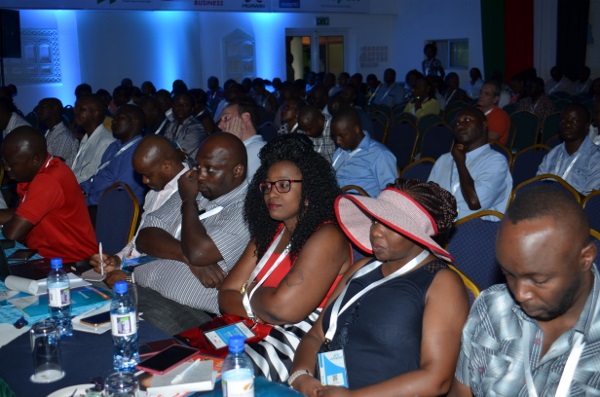Banks have become the main targets of cybercrime as people increasingly adopt the use of financial technology. According to Serianu’s Cybersecurity Report 2016, African countries lost at least $2 billion in cyber attacks in 2016.
Speaking on the first day of the Connected Summit 2017, Cisco Regional General Manager, David Bunei said the increasing use of cyberspace and digital applications posed its own challenges, which are however, outweighed by the opportunities. He encouraged CEOs to make cybersecurity a business priority.
Related >> Safaricom foils M-Pesa hacking attempt
In East Africa, Kenya recorded the highest losses — $171 million — to cyber criminals. Tanzania lost $85 million while Ugandan companies lost $35 million. Over one-third of organizations that experienced a breach in 2016 reported substantial customer, opportunity and revenue loss of more than 20 percent, this according to Cisco 2017 Annual Cybersecurity Report.
Mr Robert Mugo, the Ag. Chief Executive Officer of ICT Authority the government was committed to developing comprehensive and offensive cyber-capabilities to protect citizens in the cyber space against threats and attacks. “We will achieve this goal through enhancing ICT security competencies and bolstering international collaboration,” said Mr. Mugo.
Chief Security Officers cite budget constraints, poor compatibility of systems, and a lack of trained talent as the biggest barriers to advancing their security postures. Leaders also reveal that their security departments are increasingly complex environments with 65 percent of organizations using from six to more than 50 security products, increasing the potential for security effectiveness gaps.
Kenyan bank accounts are more prone than ever to cybercrime owing to the growing use and adoption at risk. This statement has been evidenced by statistics present in the recent Kenya Cybersecurity Report 2016, published by Serianu Limited and which asserts that Kenya lost about $175million last year.
Also See >> Kenya leads Africa in internet connection speeds
In 2016, more advanced attacks in banks were mostly perpetrated by insiders, raising the concern that the banking sector is unprepared to deal with insider threats. According to the Serianu Report, other sectors that have attracted criminals are the government, telecommunications, mobile money services, Saccos, microfinance and co-operatives, e-commerce and online markets.
He observed that with more than 75.3% of Kenyan citizens formally included in financial services through financial technology, one would logically expect a correspondent increase in cybersecurity investments in the financial services sector. Regrettably this is the opposite in the case of Kenyan banks.
The Kenya Cybersecurity Report 2016, highlights that about 44% of financial institutions run on a paltry cybersecurity budget of $1-1,000 annually, whilst about 33% of financial institutions in Kenya have $0 spend on all matters cybersecurity.
The 9th annual Information, Communication and Technology (ICT) conference dubbed ‘Connected Kenya’ is being in Kwale County. The connected Kenya Summit 2017 has the theme ‘Shaping the Future’ with particular emphasis on cyber crime. It will end on Thursday.
[crp]












Leave a comment